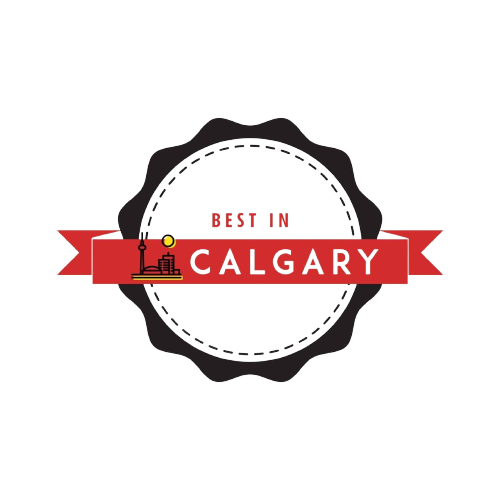There is a lot of confusion and misinformation out there about Wills and Estates, and this post is all about challenging some of those widely held beliefs – it’s like an even nerdier version of MythBusters (sadly, I’m not going to get to do any cool slow-motion videos of chemical reactions). Don’t let false information undermine your ability to make sure your family is looked after the way you’d like after you’re gone!
1. If You Don’t Have a Will, Then The Government Gets Everything.
For those of you who have heard that if you don’t have a Will, that everything goes to the government, it’s not quite that bad.
The government doesn’t get your assets.
Well, that’s not entirely true. The government likes to get its sticky paws in there somehow so they do take taxes.
Even if you don’t have a Will or Estate Plan, your Estate will go to your family. But you will have no control over how things will be divided or distributed which could lead to confusion and conflict for your family at an already very upsetting time.
2. Whoever You Name As Executor Has To Be Trustworthy Because They Can Do Whatever They Want With Your Estate.
First of all: Yes, you absolutely want to make sure that your Executor is trustworthy. They will be dealing with courts and banks on your behalf, and will have be dealing with your accounts. And technically speaking, they might be able to grab the contents of your account and leave the country. But this would be stealing – much like if the same person was invited to housesit and they sold off the contents of your home on Kijiji.
Your Executor does not get to choose where your Estate goes. (Unless your Will has specific wording that provides for your Executor to do so in the context of a Trust.) That’s what your Will is for!
A well-written Will clearly lays out your instructions, and your Executor’s job is to follow those instructions. If your Executor gives a portion of your Estate to the wrong person, whether intentional or not, they can be held personally liable for the loss to your Estate.
This is one among several reasons why I make sure that my Estate Administration clients understand what they are getting into in applying to be the Executor. It can take a lot of time and involves a lot of responsibility!
3. If You Don’t Have a Will, Then Your Estate Could Go To Anyone.
If you haven’t written and properly executed a Will, then there is still a plan for how it gets distributed. That is the good news.
The bad news is that you are essentially turning over this decision to a blanket, one-size-fits-all formula. Worse than that, this formula was determined by Provincial Government legislators 1 The formula is a predetermined order that decides who is eligible to benefit from your Estate.
Your Estate does not include any properties that you own in joint tenancy, or assets where you have named a beneficiary (Like RRSP’s, TFSA’s, Life Insurance, or Pension Plans). These assets will, with a few exceptions, be distributed to whoever is named in the policy, account, or on title.
To be fair, as far as blanket, default legislation goes, the provincial Wills and Succession Act is not bad. It is designed to copy what most people tend to do with their Estate Plans: give to those closest to them. But it is not designed for your specific situation, including your assets, your goals, your family, or your tax situation.
4. Probate Is Excessively Expensive, And Should Be Avoided At All Costs.
Probate fees are one-time fees paid by the Estate to the government to cover the cost of the court reviewing your documents and approving your Probate application, etc. I frequently see clients trying to find ways to escape Probate fees, by putting accounts in joint names, transferring property before death, etc.
There are so many risks involved in doing something like this that:
1. I’m going to have to save it for another blog post; and
2. You should talk to an Estate Planning Lawyer before doing any of it.
Usually clients have heard from their cousin/friend/hairstylist who has heard from THEIR cousin/friend/hairstylist 2 about how much of a drain probate is on their Estate. The Estates in question are almost always from another province, because Probate fees are very low in Alberta. Not only are they prorated to the value of the Estate, but they are capped as well, so large Estates are not negatively affected either.
The actual fees are as follows, based on the net value of the property in the Estate:
Under $10,000, the probate fee is $35;
Between $10,000 and $25,000, the fee is $135;
Between $25,000 and $125,000, the fee is $275;
Between $125,000 and $250,000, the fee is $400;
Over $250,000, the probate fee is $525.
Given the size of most Estates, risking your assets in order to save $525 is probably unwise.
5. It Takes Years To Probate An Estate.
Estates aren’t quick. If you were hoping that I was going to correct this myth by telling you that it could be finished in an afternoon, you came to the wrong blog.
There is a waiting period for the courts, which can vary – sometimes it can be as little as 2 or 3 months, sometimes as long as 4 or 5. (It might feel like a decade, but my records show that this is apparently not the case.) After that, the Estate will have to be distributed, but it is usually complete within a year, even for relatively large Estates with many gifts.
Estates take longer when there are trusts involved, or where there is family fighting about the way that everything should be distributed. A thorough Estate Plan can help to minimize the chances of this happening.
Hopefully, I’ve helped clear up some of the misconceptions you may have had about Wills and Estates. If you still have questions – about something you’ve heard about Wills that doesn’t quiet seem true or about Wills and Estates in general – I’d love to hear from you. Seriously, I love talking about Wills and Estates…just ask my wife!




